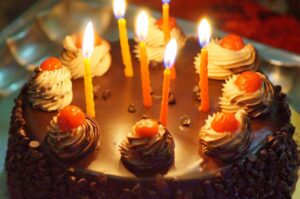Birthday Party Events in Dilsukhnagar

How to Plan the Perfect Birthday Party: A Comprehensive Guide
Introduction
Birthday Party Events In Dilsukhnagar . Birthdays are special occasions that deserve to be celebrated in style. Whether you are planning a party for yourself, a family member, or a friend, creating a memorable event involves careful planning and attention to detail. In this comprehensive guide, we will walk you through the steps to plan a perfect birthday party, covering everything from choosing a theme and venue to organizing entertainment and catering. By the end of this article, you will have all the information you need to throw an unforgettable birthday bash.
1. Choosing a Theme
Birthday Party Events In Dilsukhnagar The first step in planning a birthday party is choosing a theme. A well-chosen theme can set the tone for the entire event and make it more cohesive and enjoyable. Here are some popular themes to consider:
- Classic Themes: These include traditional birthday themes such as balloons and streamers, a favorite color, or a simple yet elegant party.
- Seasonal Themes: These are based on the time of year, like a summer beach party, a winter wonderland, or a spring garden party.
- Character/Interest Themes: These revolve around the birthday person’s favorite character, hobby, or interest, such as superheroes, princesses, sports, or movies.
Tips for Choosing a Theme:
- Consider the birthday person’s interests and preferences.
- Think about the age group of the guests.
- Ensure the theme is practical and feasible for your budget and venue.
2. Setting a Budget
Before you start making any arrangements, it is essential to set a budget. Knowing how much you can spend will help you make informed decisions and avoid overspending. Here’s how to create a budget:
Determine Your Total Budget:
- Decide on the maximum amount you are willing to spend on the party.
Break Down the Budget:
- Allocate funds to different categories such as venue, food and drinks, decorations, entertainment, and party favors.
Track Your Spending:
- Keep a detailed record of all expenses to ensure you stay within your budget.
3. Selecting a Venue
The venue is one of the most crucial aspects of a birthday party. It needs to accommodate the number of guests, fit your theme, and be accessible. Here are some venue options to consider:
- Home: Hosting the party at home is cost-effective and allows for a personal touch.
- Outdoor Locations: Parks, beaches, and gardens are great for outdoor celebrations.
- Event Spaces: Banquet halls, community centers, and rented venues offer ample space and amenities.
- Restaurants and Cafes: These are ideal for smaller gatherings and often provide catering services.
Tips for Choosing a Venue:
- Consider the number of guests and the space required.
- Think about the weather and season.
- Ensure the venue has the necessary facilities, such as restrooms and parking.
4. Sending Invitations
Invitations set the tone for the party and provide essential information to your guests. Here’s how to create and send effective invitations:
Designing Invitations:
- Choose a design that matches your theme.
- Include essential details such as date, time, location, RSVP information, and dress code (if any).
Types of Invitations:
- Printed Invitations: Traditional and elegant, perfect for formal parties.
- Digital Invitations: Eco-friendly and convenient, suitable for informal gatherings.
- Event Pages: Create a private event page on social media platforms for easy communication and updates.
Sending Invitations:
- Send invitations at least 3-4 weeks before the party.
- Follow up with guests who have not responded a week before the event.
5. Planning the Menu
The food and drinks you serve can make or break the party. A well-planned menu caters to the tastes and dietary restrictions of your guests. Here’s how to plan a delicious menu:
Decide on the Type of Food:
- Finger Foods: Easy to eat and perfect for mingling, such as sliders, mini quiches, and cheese platters.
- Buffet: Offers variety and allows guests to serve themselves.
- Sit-Down Meal: More formal and structured, suitable for intimate gatherings.
Consider Dietary Restrictions:
- Include vegetarian, vegan, gluten-free, and allergy-friendly options.
Choose a Cake:
- The birthday cake is the centerpiece of the menu. Choose a flavor and design that reflects the theme and preferences of the birthday person.
Beverages:
- Offer a mix of alcoholic and non-alcoholic drinks.
- Create a signature cocktail or mocktail to match the theme.
6. Decorating the Venue
Decorations are essential for setting the ambiance and bringing your theme to life. Here are some ideas for decorating your venue:
Theme-Based Decorations:
- Use colors, props, and decorations that match your chosen theme.
DIY Decorations:
- Get creative and make your own decorations, such as banners, centerpieces, and photo booths.
Lighting:
- Use string lights, candles, and lanterns to create a warm and inviting atmosphere.
Balloons and Streamers:
- Classic and versatile, these can be used to create balloon arches, table centerpieces, and more.
Table Settings:
- Coordinate tablecloths, plates, napkins, and utensils with your theme.
7. Organizing Entertainment
Entertainment keeps the guests engaged and adds fun to the party. Here are some entertainment options to consider:
Music:
- Create a playlist of favorite songs or hire a DJ or live band.
Games and Activities:
- Plan games and activities that suit the age group and interests of your guests, such as trivia, scavenger hunts, or craft stations.
Photo Booth:
- Set up a photo booth with props and backdrops for fun photo opportunities.
Special Performers:
- Hire entertainers like magicians, clowns, or dancers to add excitement.
8. Preparing Party Favors
Party favors are a thoughtful way to thank your guests for coming. Here are some ideas for memorable party favors:
Themed Favors:
- Choose favors that match the theme, such as mini beach balls for a beach party or personalized bookmarks for a book-themed party.
Edible Favors:
- Treats like cookies, cupcakes, or candy in decorative packaging.
DIY Favors:
- Handmade items like candles, soap, or crafts.
Personalized Favors:
- Custom items with the guest’s name or the date of the party, such as keychains or magnets.
9. Planning the Schedule
A well-organized schedule ensures that the party runs smoothly and that all activities are timely. Here’s how to plan your party schedule:
Create a Timeline:
- Outline the start and end times, along with key events like cake cutting, games, and entertainment.
Allow Flexibility:
- Be prepared to adjust the schedule as needed to accommodate any delays or changes.
Communicate with Vendors:
- Confirm timings with vendors such as caterers, entertainers, and photographers to ensure everyone is on the same page.
10. Capturing Memories
Preserving the memories of the birthday party is essential. Here are some ways to capture those special moments:
Hire a Photographer:
- Professional photographers can capture high-quality photos and videos of the event.
Create a Photo Booth:
- Provide props and backdrops for fun and creative photos.
Encourage Guests to Share Photos:
- Create a hashtag for the event and encourage guests to share their photos on social media.
Provide Disposable Cameras:
- Place disposable cameras on tables for guests to use.
Conclusion
Planning the perfect birthday party involves careful preparation, creativity, and attention to detail. By choosing a theme, setting a budget, selecting a venue, sending invitations, planning the menu, decorating the venue, organizing entertainment, preparing party favors, planning the schedule, and capturing memories, you can create a memorable and enjoyable event for the birthday person and their guests. Remember, the most important aspect of any birthday party is celebrating the special person and making them feel loved and appreciated. Happy planning!

Why Birthdays are Special: A Celebration of Life and Milestones
Birthdays are universally recognized as special occasions that mark the passage of time, celebrate life, and provide opportunities for reflection and joy. There are several reasons why birthdays “Extravaganza” hold such significance in various cultures and individual lives. Let’s delve into the various aspects that make birthdays special:
1. A Celebration of Life
Birthdays are a time to celebrate the very existence of an individual. Each birthday marks another year of life, filled with experiences, growth, and achievements. It’s a moment to appreciate the gift of life and to recognize the journey that has been traveled so far.
Why it Matters:
- Acknowledgment of Existence: Celebrating a birthday is a way of affirming someone’s presence and importance in the world.
- Gratitude for Life: It’s a time to be thankful for the life one has lived and the opportunities that lie ahead.
2. Milestones and Achievements
Every birthday marks a milestone, whether it’s turning sweet sixteen, reaching adulthood at eighteen, or celebrating a decade of life. These milestones are significant because they often come with new privileges, responsibilities, and a sense of accomplishment.
Why it Matters:
- Personal Growth: Birthdays are markers of personal development and growth. Reflecting on the past year can highlight personal achievements and areas for improvement.
- Societal Recognition: Certain ages are associated with cultural or legal milestones, such as obtaining a driver’s license, voting rights, or retirement benefits.
3. Connection and Community
Birthdays are social events that bring people together. They provide an opportunity for family, friends, and loved ones to gather and celebrate. This sense of community and connection is a vital part of human happiness and well-being.

Why it Matters:
- Strengthening Bonds: Celebrating together strengthens relationships and creates lasting memories.
- Support and Love: Being surrounded by loved ones reinforces a sense of belonging and support.
4. Reflection and Renewal
Birthdays are a natural time for reflection on the past and contemplation of the future. They offer a chance to assess personal goals, set new ones, and make positive changes.
Why it Matters:
- Self-Assessment: Reflecting on personal achievements and challenges helps in setting realistic and meaningful goals for the coming year.
- Renewal and Hope: Each birthday brings a sense of renewal and hope, encouraging individuals to look forward to the future with optimism.
5. Cultural and Religious Significance
In many cultures and religions, birthdays have special meanings and are celebrated with unique traditions and rituals. These practices add a deeper layer of significance to the day.
Why it Matters:
- Cultural Traditions: Participating in cultural traditions connects individuals to their heritage and community.
- Spiritual Reflection: In some religions, birthdays are times for spiritual reflection and blessings, adding a sacred dimension to the celebration.
6. Personal Expression
Birthdays are a time for individuals to express themselves and celebrate in ways that are meaningful to them. Whether through parties, quiet reflections, or adventurous activities, each person can choose how to mark their special day.
Why it Matters:
- Individuality: Celebrating a birthday allows for personal expression and showcases one’s unique preferences and personality.
- Joy and Fun: Planning and enjoying birthday activities can bring immense joy and satisfaction.
7. Gifts and Gratitude
Giving and receiving gifts is a common birthday tradition. While gifts are a way to show appreciation and love, the act of giving and receiving also fosters feelings of gratitude and generosity.
Why it Matters:
- Appreciation: Receiving gifts makes the birthday person feel valued and appreciated.
- Generosity: Giving gifts is an expression of love and care, strengthening bonds between people.
8. Rituals and Memories
Birthdays often involve rituals, such as blowing out candles, making wishes, and singing birthday songs. These rituals create a sense of continuity and tradition, making each birthday a memorable occasion.
Why it Matters:
- Creating Memories: Rituals and traditions make birthdays memorable and create lasting impressions.
- Continuity and Tradition: Engaging in familiar rituals provides comfort and a sense of stability.
Conclusion
Birthdays are special because they celebrate the gift of life, mark important milestones, foster connections with loved ones, and provide opportunities for reflection and personal expression. They are a time to appreciate the past, enjoy the present, and look forward to the future. Whether through cultural traditions, personal celebrations, or communal gatherings, birthdays hold a unique and cherished place in our lives.
The History of Birthdays: From Ancient Rituals to Modern Celebrations
Birthdays are a time-honored tradition that is universally celebrated across cultures and societies. They mark the passage of time, celebrate life, and provide opportunities for reflection and joy. The history of birthdays is rich and varied, reflecting the cultural, religious, and social changes that have shaped human civilization. This article explores the evolution of birthday celebrations from ancient times to the present day, highlighting significant milestones and practices along the way.
Ancient Civilizations and the Birth of Birthdays
1. Ancient Egypt: Divine Celebrations The earliest recorded birthday celebrations can be traced back to ancient Egypt. However, these celebrations were not for ordinary people but for pharaohs and gods. The Egyptians believed that when pharaohs were crowned, they became gods, and their coronation day was more significant than their actual birth date. This day was celebrated as their “birth” into divinity. The celebration involved grand feasts, offerings, and religious ceremonies that underscored the divine status of the pharaoh.
2. Ancient Greece: Honoring Gods and Mortals The Greeks adopted and adapted the Egyptian practice of birthday celebrations, extending it to mortals. They offered moon-shaped cakes adorned with candles to Artemis, the goddess of the moon and hunting, as a tribute to her birth. The candles symbolized the moon’s glow and were believed to carry prayers to the gods. Over time, birthday celebrations became more personal, with families honoring the birthdays of their members with similar rituals.
3. Ancient Rome: Public and Private Festivities The Romans were pioneers in celebrating birthdays for the common man, though initially, this privilege was reserved for men. Birthdays of friends and family members were marked with feasts, games, and other forms of merrymaking. The Roman state also recognized the birthdays of famous citizens and emperors with public holidays and ceremonies. It wasn’t until later in Roman history that women’s birthdays were acknowledged and celebrated.
Religious Influences on Birthdays
1. Early Christianity: From Pagan Roots to Religious Feasts Early Christians initially shunned birthday celebrations due to their association with pagan rituals. Instead, they commemorated the death dates of martyrs, considering these as their true “birthdays” into eternal life. This practice reflected the early Christian focus on the afterlife rather than earthly existence. However, as Christianity spread and evolved, the celebration of Jesus Christ’s birth became central, leading to the establishment of Christmas. This marked a significant shift in how birthdays were perceived and celebrated within the Christian tradition.Birthday Party Events In Dilsukhnagar
2. Jewish Traditions: Limited Celebrations In Judaism, birthdays were not traditionally celebrated, with a few notable exceptions. Significant figures like Moses had their birthdays acknowledged in religious texts. However, the Jewish focus was more on life events such as Bar and Bat Mitzvahs, weddings, and religious holidays. Over time, modern Jewish families have adopted broader birthday celebration practices influenced by surrounding cultures.Birthday Party Events In Dilsukhnagar
3. Hinduism: Celebrating Janmashtami In Hinduism, birthdays, known as Janmashtami, are celebrated, particularly those of deities like Krishna. These celebrations involve fasting, singing devotional songs, and performing rituals that honor the deity’s birth. The emphasis is on the spiritual significance of the birth rather than the personal celebration of an individual’s life. Birthdays of family members are also celebrated, often with a religious ceremony followed by a feast.Birthday Party Events In Dilsukhnagar
4. Buddhism: Buddha Jayanti In Buddhism, the birthday of Buddha, known as Buddha Jayanti, is a major festival. It marks the birth, enlightenment, and death of Buddha and is celebrated with meditation, prayer, and offerings to temples. The celebration underscores the spiritual journey and the pursuit of enlightenment, reflecting Buddhism’s philosophical focus.Birthday Party Events In Dilsukhnagar
Medieval and Renaissance Birthday Practices
1. Medieval Europe: Name Days and Religious Observances During the Middle Ages, birthday celebrations in Christian Europe were less common due to their association with paganism. Instead, name-day celebrations became popular. These were linked to the feast days of saints, with individuals celebrating the feast day of the saint they were named after. Name days involved religious observances, feasts, and communal gatherings, reflecting the medieval emphasis on piety and community.
2. Renaissance: The Revival of Personal Celebrations The Renaissance period saw a revival in the celebration of birthdays, particularly among European nobility. This era’s humanistic values emphasized the importance of individual achievements and personal identity. Nobles and royals celebrated birthdays with lavish feasts, music, and dances. These celebrations were also opportunities to display wealth and power, reinforcing social hierarchies.
The Modern Era: Birthdays for Everyone
1. The 18th and 19th Centuries: Kinderfeste and Cultural Shifts Birthday Party Events In Dilsukhnagar The modern birthday celebration began to take shape during the 18th century, particularly in Germany. The practice of Kinderfeste, where children’s birthdays were celebrated with cakes, candles, and gifts, became popular. This tradition gradually spread to other parts of Europe and North America. The industrial revolution and increased prosperity allowed more people to participate in such celebrations, making birthdays more inclusive.
2. The 20th Century: Commercialization and Popularization Birthday Party Events In Dilsukhnagar By the 20th century, birthday celebrations had become widespread and commercially significant. The introduction of birthday cards, themed parties, and the mass production of birthday cakes and decorations transformed birthdays into significant consumer events. Companies like Hallmark capitalized on this trend, creating products that catered to the growing demand for birthday-related merchandise.
3. Contemporary Celebrations: Global Traditions and Innovations Today, birthdays are celebrated worldwide, with each culture adding its unique twist. Common elements include parties, cakes, candles, gifts, and the singing of “Happy Birthday.” Technology has also transformed birthday celebrations, allowing for virtual gatherings and digital greetings. Social media platforms enable people to send birthday wishes instantly, transcending geographical boundaries.Birthday Party Events In Dilsukhnagar
Cultural Variations in Birthday Celebrations
1. Western Traditions: Cakes, Candles, and Parties In Western cultures, birthdays are often marked with cakes, candles, and parties. The ritual of blowing out candles and making a wish is a central feature. Gifts are exchanged, and the birthday person is celebrated with songs and toasts. Milestone birthdays, such as 16, 18, 21, 30, 50, and 100, are given special significance and often celebrated with larger gatherings.
2. Eastern Traditions: Longevity and Symbolism In many Eastern cultures, birthdays are celebrated with a focus on longevity and symbolic practices. In China, for instance, it is common to eat longevity noodles, which symbolize a long life. In Japan, certain ages are considered particularly significant, such as the 60th (Kanreki), which marks the completion of the traditional zodiac cycle. These celebrations often involve traditional rituals and family gatherings.
3. African Traditions: Community and Rites of Passage In various African cultures, birthdays are celebrated with communal feasts, dances, and music. Birthdays can also coincide with rites of passage, such as coming-of-age ceremonies. These events are significant communal activities that reinforce social bonds and cultural heritage.
4. Latin American Traditions: Quinceañera and Fiesta In Latin America, birthdays are celebrated with vibrant festivities. The Quinceañera, marking a girl’s 15th birthday, is a significant rite of passage celebrated with elaborate ceremonies and parties. Piñatas filled with candies and toys are a common feature at children’s birthday parties, adding an element of fun and tradition.
5. Middle Eastern Traditions: Family and Religious Elements In Middle Eastern cultures, birthdays often involve family gatherings and religious elements. Traditional foods, music, and dances are integral parts of the celebration. In some countries, it is customary to donate to charity on one’s birthday, reflecting the cultural emphasis on generosity and community welfare.Birthday Party Events In Dilsukhnagar
Birthday Cake Candles – Free photo on Pixabay – Pixabay Cake Berries Dessert – Free photo on Pixabay – Pixabay 
The Psychological and Social Significance of Birthdays
1. Psychological Impact: Identity and Self-Worth Birthdays play a crucial role in shaping an individual’s identity and sense of self-worth. Celebrating one’s birthday reinforces the idea of being valued and appreciated by loved ones. It provides an opportunity for personal reflection and self-assessment, encouraging growth and development.
2. Social Impact: Strengthening Bonds Birthday celebrations strengthen social bonds by bringing people together. They provide an occasion for friends and family to connect, share experiences, and create lasting memories. This sense of community and belonging is vital for mental and emotional well-being.
3. Milestones and Life Stages: Marking Progress Significant birthdays, such as turning 18, 21, or 50, mark important life stages and transitions. These milestones are often celebrated with special ceremonies or parties, highlighting the individual’s achievements and aspirations. They serve as markers of progress, both personal and social, and often come with new responsibilities and privileges.
Conclusion: The Enduring Legacy of Birthdays
Birthday Party Events In Dilsukhnagar The history of birthdays is a testament to the enduring human desire to celebrate life and connect with others. From ancient rituals honoring gods and kings to modern-day parties and digital greetings, birthdays have evolved to reflect the cultural, religious, and social contexts of different eras. Despite these changes, the core essence of birthdays remains the same: a celebration of life, a marker of milestones, and a reminder of the importance of community and connection.
As we look to the future, the ways we celebrate birthdays will continue to evolve, influenced by technological advancements and changing social norms. However, the significance of birthdays as a cherished tradition is likely to endure, providing opportunities for joy, reflection, and togetherness for generations to come Birthday Party Events In Dilsukhnagar
The History of Birthdays: From Ancient Rituals to Modern Celebrations
Birthdays are a time-honored tradition that is universally celebrated across cultures and societies. They mark the passage of time, celebrate life, and provide opportunities for reflection and joy. The history of birthdays is rich and varied, reflecting the cultural, religious, and social changes that have shaped human civilization. This article explores the evolution of birthday celebrations from ancient times to the present day, highlighting significant milestones and practices along the way.Birthday Party Events In Dilsukhnagar

Ancient Civilizations and the Birth of Birthdays
1. Ancient Egypt: Divine Celebrations The earliest recorded birthday celebrations can be traced back to ancient Egypt. However, these celebrations were not for ordinary people but for pharaohs and gods. The Egyptians believed that when pharaohs were crowned, they became gods, and their coronation day was more significant than their actual birth date. This day was celebrated as their “birth” into divinity. The celebration involved grand feasts, offerings, and religious ceremonies that underscored the divine status of the pharaoh.Birthday Party Events In Dilsukhnagar
2. Ancient Greece: Honoring Gods and Mortals The Greeks adopted and adapted the Egyptian practice of birthday celebrations, extending it to mortals. They offered moon-shaped cakes adorned with candles to Artemis, the goddess of the moon and hunting, as a tribute to her birth. The candles symbolized the moon’s glow and were believed to carry prayers to the gods. Over time, birthday celebrations became more personal, with families honoring the birthdays of their members with similar rituals.Birthday Party Events In Dilsukhnagar
3. Ancient Rome: Public and Private Festivities The Romans were pioneers in celebrating birthdays for the common man, though initially, this privilege was reserved for men. Birthdays of friends and family members were marked with feasts, games, and other forms of merrymaking. The Roman state also recognized the birthdays of famous citizens and emperors with public holidays and ceremonies. It wasn’t until later in Roman history that women’s birthdays were acknowledged and celebrated.Birthday Party Events In Dilsukhnagar
Religious Influences on Birthdays
1. Early Christianity: From Pagan Roots to Religious Feasts Early Christians initially shunned birthday celebrations due to their association with pagan rituals. Instead, they commemorated the death dates of martyrs, considering these as their true “birthdays” into eternal life. This practice reflected the early Christian focus on the afterlife rather than earthly existence. However, as Christianity spread and evolved, the celebration of Jesus Christ’s birth became central, leading to the establishment of Christmas. This marked a significant shift in how birthdays were perceived and celebrated within the Christian tradition.
2. Jewish Traditions: Limited Celebrations In Judaism, birthdays were not traditionally celebrated, with a few notable exceptions. Significant figures like Moses had their birthdays acknowledged in religious texts. However, the Jewish focus was more on life events such as Bar and Bat Mitzvahs, weddings, and religious holidays. Over time, modern Jewish families have adopted broader birthday celebration practices influenced by surrounding cultures.
3. Hinduism: Celebrating Janmashtami In Hinduism, birthdays, known as Janmashtami, are celebrated, particularly those of deities like Krishna. These celebrations involve fasting, singing devotional songs, and performing rituals that honor the deity’s birth. The emphasis is on the spiritual significance of the birth rather than the personal celebration of an individual’s life. Birthdays of family members are also celebrated, often with a religious ceremony followed by a feast.
4. Buddhism: Buddha Jayanti In Buddhism, the birthday of Buddha, known as Buddha Jayanti, is a major festival. It marks the birth, enlightenment, and death of Buddha and is celebrated with meditation, prayer, and offerings to temples. The celebration underscores the spiritual journey and the pursuit of enlightenment, reflecting Buddhism’s philosophical focus.
Medieval and Renaissance Birthday Practices
1. Medieval Europe: Name Days and Religious Observances During the Middle Ages, birthday celebrations in Christian Europe were less common due to their association with paganism. Instead, name-day celebrations became popular. These were linked to the feast days of saints, with individuals celebrating the feast day of the saint they were named after. Name days involved religious observances, feasts, and communal gatherings, reflecting the medieval emphasis on piety and community.
2. Renaissance: The Revival of Personal Celebrations The Renaissance period saw a revival in the celebration of birthdays, particularly among European nobility. This era’s humanistic values emphasized the importance of individual achievements and personal identity. Nobles and royals celebrated birthdays with lavish feasts, music, and dances. These celebrations were also opportunities to display wealth and power, reinforcing social hierarchies.
The Modern Era: Birthdays for Everyone
1. The 18th and 19th Centuries: Kinderfeste and Cultural Shifts The modern birthday celebration began to take shape during the 18th century, particularly in Germany. The practice of Kinderfeste, where children’s birthdays were celebrated with cakes, candles, and gifts, became popular. This tradition gradually spread to other parts of Europe and North America. The industrial revolution and increased prosperity allowed more people to participate in such celebrations, making birthdays more inclusive.Birthday Party Events In Dilsukhnagar
2. The 20th Century: Commercialization and Popularization By the 20th century, birthday celebrations had become widespread and commercially significant. The introduction of birthday cards, themed parties, and the mass production of birthday cakes and decorations transformed birthdays into significant consumer events. Companies like Hallmark capitalized on this trend, creating products that catered to the growing demand for birthday-related merchandise.Birthday Party Events In Dilsukhnagar
3. Contemporary Celebrations: Global Traditions and Innovations Today, birthdays are celebrated worldwide, with each culture adding its unique twist. Common elements include parties, cakes, candles, gifts, and the singing of “Happy Birthday.” Technology has also transformed birthday celebrations, allowing for virtual gatherings and digital greetings. Social media platforms enable people to send birthday wishes instantly, transcending geographical boundaries.
Cultural Variations in Birthday Celebrations
1. Western Traditions: Cakes, Candles, and Parties Birthday Party Events In Dilsukhnagar In Western cultures, birthdays are often marked with cakes, candles, and parties. The ritual of blowing out candles and making a wish is a central feature. Gifts are exchanged, and the birthday person is celebrated with songs and toasts. Milestone birthdays, such as 16, 18, 21, 30, 50, and 100, are given special significance and often celebrated with larger gatherings.
2. Eastern Traditions: Longevity and Symbolism In many Eastern cultures, birthdays are celebrated with a focus on longevity and symbolic practices. In China, for instance, it is common to eat longevity noodles, which symbolize a long life. In Japan, certain ages are considered particularly significant, such as the 60th (Kanreki), which marks the completion of the traditional zodiac cycle. These celebrations often involve traditional rituals and family gatherings.
3. African Traditions: Community and Rites of Passage In various African cultures, birthdays are celebrated with communal feasts, dances, and music. Birthdays can also coincide with rites of passage, such as coming-of-age ceremonies. These events are significant communal activities that reinforce social bonds and cultural heritage.
4. Latin American Traditions: Quinceañera and Fiesta In Latin America, birthdays are celebrated with vibrant festivities. The Quinceañera, marking a girl’s 15th birthday, is a significant rite of passage celebrated with elaborate ceremonies and parties. Piñatas filled with candies and toys are a common feature at children’s birthday parties, adding an element of fun and tradition.
5. Middle Eastern Traditions: Family and Religious Elements In Middle Eastern cultures, birthdays often involve family gatherings and religious elements. Traditional foods, music, and dances are integral parts of the celebration. In some countries, it is customary to donate to charity on one’s birthday, reflecting the cultural emphasis on generosity and community welfare.
The Psychological and Social Significance of Birthdays
1. Psychological Impact: Identity and Self-Worth Birthdays play a crucial role in shaping an individual’s identity and sense of self-worth. Celebrating one’s birthday reinforces the idea of being valued and appreciated by loved ones. It provides an opportunity for personal reflection and self-assessment, encouraging growth and development.
2. Social Impact: Strengthening Bonds Birthday celebrations strengthen social bonds by bringing people together. They provide an occasion for friends and family to connect, share experiences, and create lasting memories. This sense of community and belonging is vital for mental and emotional well-being.
3. Milestones and Life Stages: Marking Progress Significant birthdays, such as turning 18, 21, or 50, mark important life stages and transitions. These milestones are often celebrated with special ceremonies or parties, highlighting the individual’s achievements and aspirations. They serve as markers of progress, both personal and social, and often come with new responsibilities and privileges.
Conclusion: The Enduring Legacy of Birthdays
The history of birthdays is a testament to the enduring human desire to celebrate life and connect with others. From ancient rituals honoring gods and kings to modern-day parties and digital greetings, birthdays have evolved to reflect the cultural, religious, and social contexts of different eras. Despite these changes, the core essence of birthdays remains the same: a celebration of life, a marker of milestones, and a reminder of the importance of community and connection. Birthday Party Events In Dilsukhnagar
As we look to the future, the ways we celebrate birthdays will continue to evolve, influenced by technological advancements and changing social norms. However, the significance of birthdays as a cherished tradition is likely to endure, providing opportunities for joy, reflection, and togetherness for generations to comeBirthday Party Events In Dilsukhnagar
The Evolution of Birthday Party Culture in India
Birthday Party Events In Dilsukhnagar .Birthday celebrations in India, as they are observed today, have a rich and varied history that has been influenced by a blend of indigenous traditions, colonial influences, and modern global practices. This article explores the journey of birthday party culture in India, tracing its origins, transformations, and contemporary manifestations.
Ancient and Medieval India: Birthdays in Traditional Contexts
1. Ancient India: Vedic Traditions and Astrology In ancient India, birthdays were observed in a manner deeply rooted in religious and astrological traditions. The Vedas, ancient Hindu scriptures, mention rituals and ceremonies performed to mark significant life events, including births. However, these were not “parties” in the modern sense but spiritual observances involving prayers, offerings, and rituals.
- Astrological Significance: The precise time and date of birth were recorded for astrological purposes. Hindu astrology, or Jyotisha, played a crucial role in determining a person’s horoscope, which influenced significant decisions throughout their life.
- Samskaras: The concept of Samskaras (rituals or sacraments) in Hinduism includes various rites of passage, one of which is Jatakarma, performed soon after a child’s birth. This ritual is more about ensuring the child’s spiritual well-being than celebrating the birthday annually.
2. Medieval Period: Royal Celebrations and Public Observances During the medieval period, birthday celebrations were primarily confined to royal families and the elite. These celebrations were grand and elaborate, often involving public feasts, distribution of gifts, and various forms of entertainment.Birthday Party Events In Dilsukhnagar
- Mughal Influence: The Mughal emperors, known for their opulence, celebrated birthdays with grandeur. Emperor Akbar’s birthday, for example, was marked by lavish celebrations, including parades, fireworks, and public feasts. Such practices influenced local rulers and nobility.
Colonial Era: Introduction of Western Birthday Customs
1. British Influence: Adoption of Western Practices The arrival of the British in India brought significant changes to social customs, including the way birthdays were celebrated. Western-style birthday parties, complete with cakes, candles, and singing of “Happy Birthday,” began to influence Indian society, particularly among the urban and educated classes.
- British India: The British expatriates in India celebrated birthdays with cakes, parties, and games, setting a trend that was gradually adopted by affluent Indians who had closer interactions with the British.
- Christian Missionaries: Christian missionaries and schools also played a role in popularizing Western birthday customs. Many Indian children attending missionary schools were introduced to the idea of celebrating birthdays with cakes, candles, and gifts.
2. Post-Independence Era: Hybrid Celebrations After India gained independence in 1947, there was a period of cultural amalgamation where traditional Indian customs coexisted with adopted Western practices. Birthday celebrations began to take on a hybrid character, combining elements of both traditions.
- Urbanization and Media Influence: The growth of urban centers and the influence of media (radio, television, and later, the internet) played a significant role in spreading the culture of birthday parties across different strata of society.
- Cultural Integration: Elements like birthday cakes and singing “Happy Birthday” were integrated with traditional practices such as seeking blessings from elders, performing pujas (prayers), and wearing new clothes.Birthday Party Events In Dilsukhnagar
Contemporary Birthday Party Culture in India
1. Modern Celebrations: A Blend of Tradition and Modernity Today, birthday celebrations in India are a blend of traditional and modern practices. The way birthdays are celebrated can vary significantly based on factors such as region, religion, economic status, and personal preferences.Birthday Party Events In Dilsukhnagar
- Children’s Birthdays: Children’s birthday parties are often grand events involving themed decorations, games, entertainment (like clowns or magicians), and elaborate cakes. These parties are influenced by global trends, with themes based on popular cartoons or superhero characters.
- Adult Birthdays: For adults, birthday celebrations might involve parties at home, restaurants, or even nightclubs. Milestone birthdays, such as 18th, 21st, 50th, and 60th, are often celebrated with larger gatherings and special events.
- Corporate Influence: The corporate sector has also embraced the birthday culture, with companies organizing celebrations for employees, thereby fostering a sense of community and belonging.
2. Regional Variations: Diverse Cultural Practices India’s diverse cultural landscape means that birthday celebrations can vary widely from one region to another. Each region has its unique customs and traditions that influence how birthdays are celebrated.Birthday Party Events In Dilsukhnagar
- North India: In North India, birthdays are often marked with a special puja at home or in temples, followed by a party. Wearing new clothes, touching elders’ feet for blessings, and distributing sweets are common practices.
- South India: In South India, traditional rituals like the Ayush Homam (a Vedic ritual for long life) are performed on birthdays. Cutting a birthday cake has also become popular, especially among the younger generation.
- East India: In Bengal, a child’s first birthday is celebrated with a ceremony called Annaprashan, where the child is fed solid food for the first time. Subsequent birthdays involve family gatherings, pujas, and parties.
- West India: In Maharashtra and Gujarat, birthdays are celebrated with traditional rituals, family get-togethers, and parties. The Parsi community, known for its unique customs, celebrates birthdays with prayers at the fire temple and feasts.
3. Religious Influences: Spiritual Significance Birthday Party Events In DilsukhnagarIn addition to regional variations, religious beliefs and practices significantly influence birthday celebrations in India.
- Hinduism: Hindus often begin their birthday with a visit to the temple to seek blessings. Performing a Havan (sacred fire ritual) or visiting a priest for a special puja is common. In some families, the birthday is considered an auspicious day to give to charity.
- Islam: Muslims may celebrate birthdays with family gatherings and feasts. Some Muslims may also choose to perform acts of charity or recite the Quran. However, traditional birthday customs like cakes and parties are also widely embraced.
- Christianity: Christians in India celebrate birthdays similarly to Western traditions, with cakes, parties, and prayers at church. The influence of Christian missionaries historically has left a lasting impact on birthday celebrations among Indian Christians.
- Sikhism: Sikhs may start their birthday with prayers at the Gurdwara (Sikh temple) and partake in communal meals (Langar). Like other communities, they also celebrate with cakes and parties.Birthday Party Events In Dilsukhnagar

4. The Role of
Media and Globalization The influence of global media and the internet has played a crucial role in shaping contemporary birthday celebrations in India. Television shows, movies, social media platforms, and international trends have introduced and popularized various elements of birthday parties.Birthday Party Events In Dilsukhnagar
- Social Media: Platforms like Facebook, Instagram, and WhatsApp have transformed how birthdays are celebrated and remembered. Virtual wishes, online parties, and sharing birthday moments have become integral parts of the celebration.
- Commercialization: The commercial aspect of birthdays has also grown, with businesses offering specialized services such as event planning, themed decorations, custom cakes, and entertainment options. The market for birthday-related products and services has expanded significantly.Birthday Party Events In Dilsukhnagar
5. Unique Indian Innovations: New Trends in Birthday Celebrations In addition to adopting global practices, India has also contributed unique elements to the culture of birthday celebrations. These innovations reflect the country’s creativity and adaptability.
- Destination Birthdays: Celebrating birthdays at exotic locations, such as resorts, theme parks, or even abroad, has become a trend among affluent families.
- Personalized Themes: Themed parties tailored to individual preferences, from Bollywood nights to traditional Indian themes, are increasingly popular.
- Charitable Birthdays: Some people choose to celebrate their birthdays by giving back to society, such as organizing charitable events, donating to orphanages, or feeding the underprivileged.
- Eco-Friendly Celebrations: With a growing awareness of environmental issues, eco-friendly birthday parties are gaining popularity. These celebrations focus on sustainability, using biodegradable decorations, and minimizing waste.Birthday Party Events In Dilsukhnagar
Conclusion: The Future of Birthday Celebrations in India
The evolution of birthday party culture in India is a fascinating journey that reflects the country’s dynamic blend of tradition and modernity. From ancient rituals and colonial influences to contemporary celebrations, birthdays in India have transformed into multifaceted events that cater to diverse tastes and preferences. As India continues to embrace global trends while preserving its rich cultural heritage, the way birthdays are celebrated will likely continue to evolve, incorporating new ideas and innovations while maintaining the essence of joy and togetherness that defines these special occasions.Birthday Party Events In Dilsukhnagar




Very good blog you have here but I was wanting to know if you knew of any user discussion forums that cover the same topics talked about in this article? I’d really love to be a part of online community where I can get opinions from other experienced individuals that share the same interest. If you have any recommendations, please let me know. Thanks!
This is exactly the information I needed.
Watch movies from the guy’s point of view to feel like you’re right in the center of the action and obtain a good view!
You could find big booties in virtually any other category it is possible to
think of! Whether you’re into curvy teenagers, sexy MILFs,
or thick Asians, they all have a spot here. Check out the bouncing,
backshots, and incredible action in group sex, gangbangs, anal, one-on-one, and many more. https://sexy-joyocpd470358.shoutmyblog.com/28205946/ever-heard-about-excessive-how-to-get-a-girl-to-send-you-nudes-nicely-about-that
Watch movies from the guy’s point of view to feel like you’re right in the center of the action and
obtain a good view! You could find big booties
in virtually any other category it is possible to think of!
Whether you’re into curvy teenagers, sexy MILFs, or
thick Asians, they all have a spot here. Check out the bouncing,
backshots, and incredible action in group sex, gangbangs, anal, one-on-one, and many more. https://sexy-joyocpd470358.shoutmyblog.com/28205946/ever-heard-about-excessive-how-to-get-a-girl-to-send-you-nudes-nicely-about-that
Just desire to say your article is as astounding. The clearness on your post is simply spectacular and that i can think you are knowledgeable in this subject. Fine together with your permission let me to grab your feed to stay updated with impending post. Thanks a million and please continue the enjoyable work.
I’ve observed that in the world nowadays, video games will be the latest fad with children of all ages. Often times it may be impossible to drag your son or daughter away from the games. If you want the best of both worlds, there are various educational activities for kids. Interesting post.
Thank you for every other informative site. The place else may I get that kind of information written in such an ideal method? I have a undertaking that I’m simply now operating on, and I have been at the glance out for such information.
I feel this is among the such a lot vital info for me. And i am happy reading your article. However want to remark on few common issues, The web site style is wonderful, the articles is in reality nice : D. Excellent process, cheers
Thanks , I’ve just been searching for info about this subject for ages and yours is the greatest I have discovered so far. But, what about the bottom line? Are you sure about the source?
You made some decent points there. I regarded on the web for the difficulty and found most individuals will associate with with your website.
One other issue issue is that video games usually are serious naturally with the most important focus on studying rather than enjoyment. Although, it comes with an entertainment facet to keep children engaged, every single game is generally designed to focus on a specific group of skills or course, such as math or scientific discipline. Thanks for your write-up.